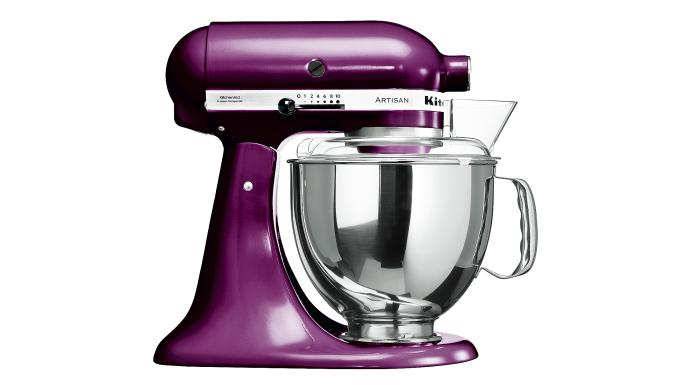
The sharing economy has grown so much that you can now rent out your belongings. Fat Lama, a website described as “the Airbnb for stuff”, launched last year in London and has recently expanded to cover the UK.
The idea is that you can make your belongings earn their keep when they aren’t being used, or rent out useful but rarely used things to avoid having to buy them. Why keep a pasta, bread or ice-cream maker crammed in your cupboard when you can rent one from someone else?
In the future people won’t own anything — appliances, clothes and cars will be rented
As well as kitchen equipment, you can find ski outfits, wedding dresses, marquees, DJ equipment, film projectors, Prada handbags and Christian Louboutin shoes listed on the site.
Owning stuff is passé, according to Trip Adler, the founder of Scribd, an online book and magazine subscription service. He told The Sunday Times last month: “As a futurist, I’m of the mindset that you won’t really buy anything, and that’s kind of how the world will work.”
Ida Auken, a Danish MP, has also suggested that in the future people won’t own things — appliances, clothes, cars and homes will be rented when they are needed.
There are two types of business feeding into the trend for buying less stuff and making the most money out of the things that you have: subscription services such as Scribd, Spotify (bye-bye CDs) and Netflix (farewell DVDs), which allow you to rent things digitally; and sharing sites such as Just Park, which allows you to rent out your driveway, Love Home Swap, which lets you swap your home for someone else’s when you fancy a cheap holiday, and Airbnb, which means you can make money from your house or spare room.
PWC, the accountancy and consultancy, predicts that the main sharing economy sectors could experience a 20-fold increase in revenue, from £7 billion to £140 billion, by 2025.

Benoit Berthe is a regular borrower and lender via the Fat Lama website
Fat Lama allows you to hire out anything worth up to £25,000 and charges 30 per cent of the hire fee — 15 per cent paid by you and 15 per cent by the borrower. The item is covered by insurance and renters are assessed using an algorithm that calculates risk, with 3 per cent of prospective users refused access.
Chaz Englander, 25, is one of the three co-founders who came up with the idea for Fat Lama when they were renovating a co-working space in east London.
Needing to use basic, but expensive tools such as vacuum cleaners and ladders, they ended up buying many things they would need only once and then have to sell them because there was nowhere to put them. “We knew there had to be a ladder not 100 yards from us, but we couldn’t access it,” says Mr Englander. At the same time they were borrowing furniture from another company that couldn’t afford to store it.
The site may be in its infancy, but it has big backers: a US company that invested in Airbnb is investing in Fat Lama and the start-up has just soft-launched in New York and San Francisco, with a few hundred people registered. It is launching its UK app in two weeks.
Self-employed DJs, graphic artists, photographers and film-makers are adding an extra revenue stream by hiring out their equipment. Those starting out in their career, meanwhile, are benefiting from hiring these items more cheaply.
Some people are making enough money from renting out equipment that it is becoming their full-time job, says Mr Englander, or they are earning enough to scale back on their main jobs.
The fact that some renters are making a decent return is “a real turning point for the platform”, he says.
“We have lots of people earning £600 to £700 a month. It’s about taking an unmonetised asset and making it monetised. We describe it as free money. There are people doing things that they couldn’t afford before and having a lot more time off work and focusing on hobbies and cool stuff.”
‘I’ve borrowed camera lenses’
Benoit Berthe, a 28-year-old animation film-maker, first came across Fat Lama in May when he was looking to rent a video projector from a professional hire company. Instead, he found out about the site and realised he could hire it for a tenth of the price.
“Since then I’ve also borrowed camera lenses and a Hallowe’en costume. And I’ve lent my professional camera, my triathalon wetsuits and some lenses. I’ve met some friendly people and stayed in touch with some of them. I choose to use the site because it’s cheaper and far better for the environment.”
